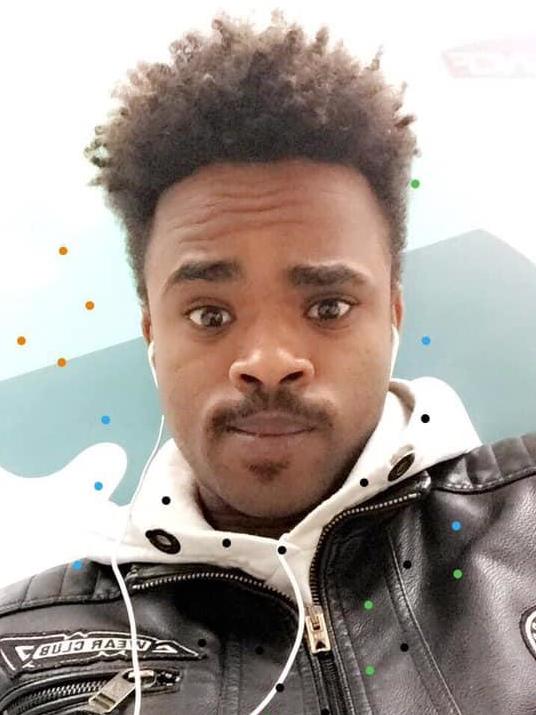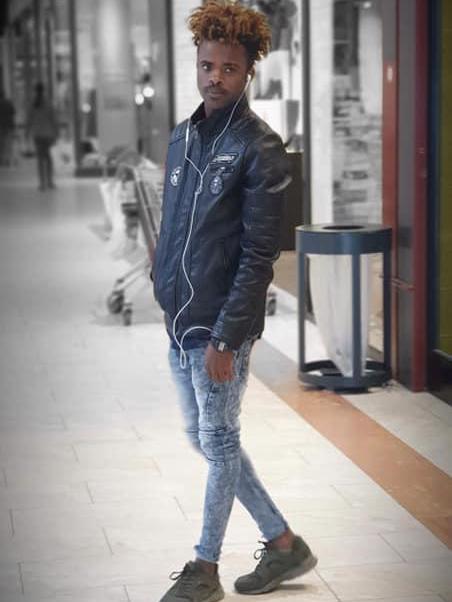Channel crossings: Sudanese migrant who drowned trying to reach UK named as Abdulfatah Hamdallah
Exclusive: Drowning victim had been living in Calais ‘Jungle’ for two months before fatal crossing attempt
The Sudanese migrant who drowned trying to cross the English Channel has been named as Abdulfatah Hamdallah.
A French official confirmed his identity to The Independent amid an investigation into his death.
His last Facebook post, made on 17 June, was a photograph of himself and a friend with the caption: “We walk on the palm of fate, and do not know what is written.”
Philippe Sabatier, Boulogne-sur-Mer’s deputy public prosecutor, said a travel document being carried by Mr Hamdallah gave his age as 28.
His friend, who survived when their small dinghy capsized, had told rescuers he was 16.
Mr Sabatier said the pair had been living in the Calais “Jungle” camp for two months before attempting the crossing, but that investigators had not yet pieced together their journey to France.
“I don’t know if he had applied for asylum with British authorities, but he appears to have done so with the French authorities,” he added.
The Independent understands that Mr Hamdallah, who was known by the nickname Wajdi, had not lodged an asylum claim or been referred for resettlement in the UK.
He and a friend had stolen an inflatable boat from a shop in Sangatte, then taken shovels from a beachside chalet to use as oars.
The vessel was a small dinghy that can be purchased in supermarkets, officials said, and inflated by mouth.
Mr Sabatier said the survivor told officials one of the shovels had punctured the boat and caused them to fall into the sea.

Mr Hamdallah’s friend managed to reach the shore, suffering from hypothermia, and alerted authorities shortly after 1am on Wednesday.
“[He said] that they capsized and his companion must still be in the water,” said a statement from the maritime prefecture for the Channel. “He also warned that his companion could not swim.”
A sea search was carried out using boats and a Belgian air force helicopter, but was called off at around 4.30am when nothing was found.
Authorities were alerted to the discovery of the body at 8am and official announcements by French authorities originally said he was 16.
Priti Patel appeared to blame “abhorrent criminal gangs”, but Mr Sabatier said the migrants acted on their own initiative and there was no known link with a smuggling network.
A French politician blamed the British government for causing the death, amid continuing talks aiming to reduce the number of migrants attempting crossings.
Pierre-Henri Dumont, who represents Calais in the French National Assembly, said the death was “what we all feared”.
“How many more tragedies will it take for the British to regain an ounce of humanity?” he added.
“The inability to apply for asylum in Britain without being physically present is causing these tragedies.”
Mr Dumont said that migrants living in informal camps around Calais, despite a series of forced evictions in recent years, did not want asylum in France and had refused state support.
A parliamentary report released in November said “dire” conditions in camps in the area were among the driving factors behind increasing migrant sea crossings.

“Focusing on increasing border security without improving conditions in the region may have the counterproductive effect of forcing migrants to make desperate journeys across the Channel,” the Foreign Affairs Committee said.
“The UK should work closely with French authorities to improve the conditions for migrants. It should ensure efficient processing of asylum claims by those with relatives in the UK, and make it a priority to maintain close bilateral cooperation with France after Brexit, including on these claim.”
Family members, who have put Mr Hamdallah’s age at 22, reportedly said he had fled the Sudanese state of West Kordofan – which borders the conflict-ridden region of Darfur – in 2014, before travelling on to Libya and then France via Italy. He is understood to have had his asylum claim in France rejected before attempting to move on to the UK.
His older brother, Al-Fatih Hamdallah, who remains in Libya, told The Guardian: “In France, they rejected his case so he decided to leave to the UK. He had been living in France for the last three years. He wanted to have a better life from the horror we used to live in, but what happened has happened.”
Mr Hamdallah’s death came weeks after the Home Office announced a new “joint action plan” with France and put a former royal marine in the post of “clandestine Channel threat commander”, Dan O’Mahoney.
He met with representatives from France’s interior ministry, maritime and defence officials on Thursday, and visited the Calais centre where French and British officials are working to tackle crossings.
Mr O’Mahoney said: “Yesterday’s incident, where a Sudanese migrant lost his life attempting to cross the Channel, served as a tragic reminder of the vital importance of the work the UK and France are engaged in to make this route completely unviable.
“At meetings I have held in Paris and Calais today there were positive discussions about enhancing operations with increased surveillance, aerial support, further intelligence-sharing and patrols in northern France. I look forward to returning in the coming weeks to progress these discussions.”
The RAF has sent surveillance aircraft to assist the Border Force, after the UK gave France millions of pounds to increase security along its coastline.
The shadow home secretary, Nick Thomas-Symonds MP, said the government’s response to rising Channel crossings had been “lacking in compassion and competence”.
“Ministers urgently need to step up work with international partners to find a humanitarian solution to this crisis, which is costing lives,” he added.
Maurice Wren, chief executive of the Refugee Council, said the tragedy “should be a wake-up call” for the government.
He added: “Talking tough is putting lives at risk. It’s time for Britain and France to work together to ensure that no one else needlessly loses their life on these perilous journeys.
“Safe and regular routes to the UK must be put in place immediately for people fleeing war and persecution.”
Mr Hamdallah is one of at least five migrants to drown while attempting to cross the English Channel in the past year.
In May, a drowned migrant was found at the port of Calais, two men were found on Touquet beach in October and in August 2019, an Iranian woman drowned.
United Nations figures show that more than 19,500 migrants have lost their lives attempting to reach Europe across the Mediterranean Sea since 2014, but the death toll for the English Channel is not formally recorded.
The Border Force said 164 people travelling on 11 vessels reached the UK on Wednesday, bringing the total for 2020 to almost 5,000.
Last week, the UN Refugee Agency called for the British and French governments to make saving lives the “first priority”.
Join our commenting forum
Join thought-provoking conversations, follow other Independent readers and see their replies
Comments
Bookmark popover
Removed from bookmarks